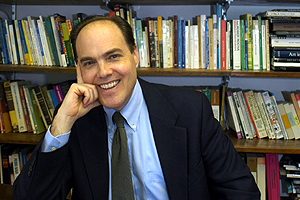
Stanford University, PhD '86
Prof. Borges has retired and no longer directs BA theses or accepts new graduate students.
BIOGRAPHY
Dain Borges works on nineteenth- and twentieth-century Latin American culture and ideas. His current research project, "Races, Crowds, and Souls in Brazilian Social Thought, 1880–1920," centers on the ways in which Brazilian intellectuals used race sociology and social psychology to understand popular religion and politics. He teaches seminars and courses on Latin American history, comparative nineteenth-century transformations, ideologies of national identity, and culture in the African diaspora.
Recent Research / Recent Publications
-
“Mockery and Piety in Eça de Queirós and Machado de Assis.” Revista de Estudos Literários [Coimbra] (2016).
-
“Catholic Vanguards in Brazil.” In Local Church, Global Church: Catholic Activism in Latin America from Rerum Novarum to Vatican II, edited by Stephen J. C. Andes and Julia G. Young. Washington, DC: Catholic University of America Press, 2015.
-
"Healing and Mischief: Witchcraft in Brazilian Law and Literature, 1890–1922." In Crime and Punishment in Latin America, edited by Carlos Aguirre, Gilbert Joseph, and Ricardo Salvatore. Durham, NC: Duke University Press, 2001.
-
Esau and Jacob, by Machado de Assis. New York: Oxford University Press, 2000 (editor).
-
"A Mirror of Progress." In The Brazil Reader: History, Culture, Politics, edited by Robert M. Levine and John J. Crocitti. Durham, NC: Duke University Press, 1999.
-
"Intellectuals and the Forgetting of Slavery in Brazil." Annals of Scholarship 11 (1996).
-
"The Recognition of Afro-Brazilian Symbols and Ideas, 1890–1940." Luso-Brazilian Review 32 (1995).
-
"Puffy, Ugly, Slothful, and Inert: Degeneration in Brazilian Social Thought, 1880–1940." Journal of Latin American Studies 25 (1993).
-
The Family in Bahia, Brazil, 1870–1945. Stanford: Stanford University Press, 1992.
-
Discusses "Natural Disasters and Social Responses" at the Summer Teacher Institute, University of Chicago [video, 50 mins]
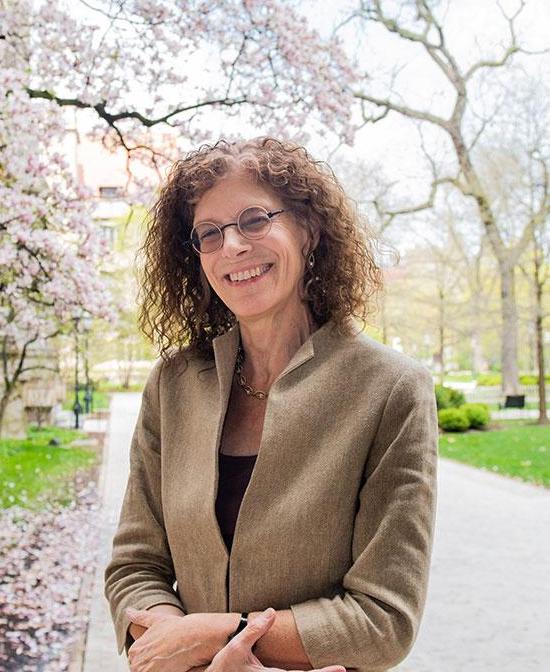
Brown University, PhD '88
BIOGRAPHY
The primary national focus of my research is modern France, but I have found myself intrigued by research problems best treated transnationally. My most recent book, Cultural Revolutions, moves across the Atlantic world from Britain, to colonial and early national America, and finally eastwards again to France. My ongoing pair of projects, Strangers at Home and Conundrums of Commemoration, stay on the European continent but involve a comparative analysis of Paris and Berlin in the twentieth century. Finally, although I have not yet published extensively in this area, I maintain an active interest in and regularly teach the history of European colonialism and the postcolonial world it left behind.
Conceptually, my work focuses on the intersection of material culture, everyday life, and politics. I seek to explain how and why everyday things have become catalysts for conflict, means of expressing identities and constructing selves, vehicles for dissenting opinions, and sites of unexpected state intervention. My research agenda is based on the hypothesis, informed by phenomenology and feminist theory, that key to answering these questions is the close and careful study of material culture, but a close and careful study that always links the concreteness of everyday goods to the abstractions of polity, society, and economy.
Although the courses I offer are necessarily broader and more general than this research agenda, they have been systematically informed by it. I use material and well as visual and textual sources in virtually all my classes, and nearly all are transnational in reach.
TEACHING
Undergraduate courses (selected)
-
Problems in Gender Studies
-
Europe 1930 to the present
-
Colonizations Civ III
-
Jewish Civ III
-
Modern Jewish History
-
Cultural Revolutions
Graduate courses (selected)
-
Seminar: Religion, Politics and Society in Modern Europe (with John Boyer)
-
Everyday Life in Modern Europe (with Sheila Fitzpatrick)
-
Seminar: The Politics of Memory in France and Germany (with Michael Geyer)
-
Gender in Europe (with Susan Gal)
-
Seminar: Race, Racism and and Anti-Racist Movements in Modern Europe
Recent fields for general examinations
-
Modern European History
-
Modern French History
-
Gender History and Theory
-
Culture and Politics in Modern Europe
-
European Social History
Titles of some recent (or current) AB and AM theses and PhD dissertations
-
Islam and the Republic: A Study of the Effects of the Algerian Civil War on French Understandings of Islam
-
Female Action and the Closing of the Women’s Clubs during the Reign of Terror
-
War Relic: Revisiting the Leaning Virgin of Albert
-
Working Class Milieus under Attack: Struggles between the Left and Right in Leipzig and Lyon, 1929–1936 (co-chair with Michael Geyer)
-
The Evolution of French Abolitionism and the Memories of the French and Haitian Revolutions, 1815–1848
-
The Ground Beneath their Feet: Agricultural Industrialisation and the Remapping of Rural France, 1954–1976
-
Making Islam French Unsettling French Algeria: Settlement, Terror, and Violence in the French-Algerian War, 1954–1962.
-
The Permanent Souvenir: Tattoos and Travel from Banks to Barnum Cultivating the Nation, Refining Empire: Wine, Sugar, and Nation-building in Guadeloupe and the Aude, 1880–1910
-
The Imperialism of Un-Free Trade: Nineteenth Century British Wine-Trading Enclaves in Oporto, Madeira, and Andalusia
-
Writing Black, Talking Back: Consuming, Performing, and Selling Race in Postwar France, 1945–1968
-
From Children to Citizens: Republican and Catholic Primary Education in France, 1880–1914
-
Fashioning the Folk: The Production and Reproduction of Alsatian Traditional Dress, 1871–1939
-
The Rebirth of the Mediterranean: Migrants, Race, Nation, and Labor in the Western Mediterranean, 1914–1940
-
Pale Fire: Jews in Revolutionary White Russia, 1917–1929 (cochair with Sheila Fitzpatrick)
-
Selling Paris: The Real Estate Market and Commercial Culture in the Nineteenth-Century Capital
Recent Research / Recent Publications
My publications in the domain of material culture and the histories of production and consumption include two books: Cultural Revolutions: Everyday Life and Politics in Britain, North America, and France (Oxford: Berg Press, 2008; Berkeley: University of California Press, 2009); French translation (Presses Universitaires de Mirail, 2009) and Taste and Power: Furnishing Modern France (Berkeley: University of California Press, 1996). I am also currently working on two book-length projects in this area: The Everyday of Modern Citizenship: France and Germany 1918–1940 and Conundrums of Commemoration.
My articles on material cultural and politics include "Perceptions of Beauty and the Problem of Consciousness," in Lenard Berlanstein, ed. Rethinking Labor History (Urbana: Univeristy of Illinois Press, 1993); "After the Revolution: Recycling Ancien Régime Style in the Nineteenth Century," in Bryant T. Ragan and Elizabeth Williams, eds. Recreating Authority in Revolutionary France (New Brunswick, NJ: Rutgers University Press, 1992), pp. 144–174; "The Gendering of Consumer Practices in Nineteenth-Century France," in Victoria de Grazia and Ellen Furlough, eds. Sex of Things: Essays on Gender and Consumption (Berkeley: University of California Press, 1996), pp. 79–112; “Regeneration through the Everyday? Furniture in Revolutionary Paris,” in a special issue of Art History 28, no. 1 (Spring 2005), ed. Katie Scott, and; “Beyond Words,” American Historical Review (October 2005); “Historians and Architectural History,” Journal of the Society of Architectural Historians (March 2006).
My work on material culture, postcolonialism, and everyday politics in contemporary Europe includes three essays: "'Sambo' in Paris: Race and Racism in the Iconography of the Everyday," (coauthored with Tom Holt) in Susan Peabody and Tyler Stovall, eds. The Color of Liberty: Histories of Race in France, (Raleigh, N.C.: Duke University Press, 2002); "Bavarian Crucifixes and French Headscarves: Religious Practices and the Postmodern European State," Cultural Dynamics 12/3 (2000): 183–209 and "Accommodation, Resistance, and Eigensinn: Evolués and Sapeurs between Africa and Europe," in Belinda Davis, Michael Wildt, eds. Alltag, Erfahurng, Eigensinn: Historisch-Anthropologische Erkundungen (Frankfurt/New York: Campus Verlag, 2008), pp. 205–217.
My most recent area of research is at the intersection of Jewish history and material culture. Some early thoughts on those questions may be found in "'Jewish Taste'? Jews, and the Aesthetics of Everyday Life in Paris and Berlin, 1933–1942," in Histories of Leisure, ed. Rudy Koshar, 299–318 (Oxford: Berg Press, 2002). That reflection has taken a somewhat different turns in "Resisting Context: The Spiritual Objects of Tobi Kahn," in Objects of the Spirit: Ritual and the Art of Tobi Kahn, ed. Emily Bilski, 71–78 (New York: Avoda/Hudson Hills, 2004); "Coming Home? Jews in Postwar Paris," Journal of Contemporary History 40, no. 2 (2005): 237–59; and "The Boundaries of Jewishness or when is a Cultural Practice Jewish?" Jewish Social Studies (Spr. 2009). Finally, "Archiving a Life: Post-Shoah Paradoxes of Memory Legacies" for a volume edited by Alf Lüdtke and Sebastien Jobs, submitted September 2008, is my most recent venture in this area.
My work in the field of feminist history and gender studies includes Différence des sexes et protection sociale (XIXe–XXe siecles), a coedited volume with Michelle Zancarini-Fournel (Paris: Presses Universitaires de Vincennes, 1995); "Feminist Theory and Social History: Explorations in the Politics of Identity," Radical History Review 53 (Fall 1992): 158–76; "Do Women's + Feminist + Men's + Lesbian and Gay + Queer Studies = Gender Studies?" differences 9, no. 3 (Fall 1997): 1–30; Le genre de la nation. Fall 2000 issue of Clio: Histoire, femmes et sociétés on gender, citizenship, and the nation, coedited with Michelle Zancarini-Fournel; "Women's Suffrage, Citizenship Law and National Identity: Gendering the Nation-State in France and Germany,1871–1918," in Women's Rights and Human Rights: International Historical Perspectives, ed. Patricia Grimshaw, Katie Holmes and Marilyn Lake, 138–52 (London: Macmillan, 2001); "Gender at the Intersection of the Disciplines," Cahiers Parisiens/Parisian Notebooks 2 (2006): 434–46; and an issue on "Judaïsme(s): genre et religion" for Clio: Femmes, Genre, Histoire 44 (2016), co-edited Sylvie Steinberg.
-
Recipient of the Quantrell Award for excellence in undergraduate teaching, 2023
-
Co-edits Objects of War with Tara Zahra, 2018
-
Featured in "French Historians under the Spotlight," French History Network (blog), Apr. 2017
-
Delivers Samuel and Lillian Solotkin Memorial Lecture in Jewish Studies, Indiana University, Feb. 2017
-
Taste and Power: Furnishing Modern France cited "Trump, Taste, and Power," Arts & Econ (blog), 2017
-
Leads Teaching from Objects workshop, Western Society for French History, 2015
-
Co-organizes "People and Things on the Move" conference with Tara Zahra, Neubauer Collegium, May 2015
-
Named the inaugural Arthur and Joann Rasmussen Professor in Western Civilization
-
Awarded Faculty Award for Excellence in Graduate Teaching and Mentoring
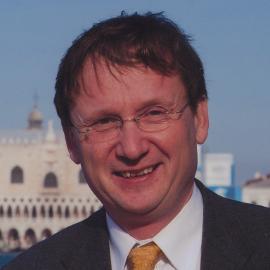
University of Cambridge, PhD '92
BIOGRAPHY
Adrian Johns is the author of The Science of Reading: Information, Media, and Mind in Modern America (Chicago, 2023), Death of a Pirate: British Radio and the Making of the Information Age (Norton, 2010), Piracy: The Intellectual Property Wars from Gutenberg to Gates (Chicago, 2009), and The Nature of the Book: Print and Knowledge in the Making (Chicago, 1998), and co-editor (with James Evans) of Beyond Craft and Code: Human and Algorithmic Cultures, Past and Present (Osiris 38, 2023, forthcoming). He has also authored dozens of papers in the histories of science, the book, media, and information. The Nature of the Book won the Leo Gershoy Award of the American Historical Association, the John Ben Snow Prize of the North American Conference on British Studies, the Louis Gottschalk Prize of the American Society for Eighteenth-Century Studies, and the SHARP Prize for the best work on the history of authorship, reading, and publishing. Piracy won the Laing Prize and was selected as Book of the Year by the American Society for Information Science and Technology. Johns has been awarded Guggenheim, ACLS, NEH, and NSF fellowships. Educated in Britain at the University of Cambridge, he has also taught at the University of Kent at Canterbury, the University of California, San Diego, and the California Institute of Technology.
Recent Research / Recent Publications
The Science of Reading: Information, Media, and Mind in Modern America (Chicago: University of Chicago Press, 2023).
Beyond Craft and Code: Human and Algorithmic Cultures, Past and Present (Osiris 38, 2023). (Co-edited with James Evans.)
Presentation on "The Science of Reading and the Making of the Information Society," UIUC, March 2024 (video).
Presentation on “After Hours: Historia Coelestis,” Linda Hall Library, November 2022 (video).
Publication of “Piracy in the Book Trade” [essay review of Robert Darnton, Piracy and Publishing], American Historical Review 127:3 (September 2022), 1433–1435.
“Watching Readers Reading.” Textual Practice 35:9 (October 2021), 1429-52.
“Privacy.” In A. Blair, P. Duguid, A.-S. Goering, and A. Grafton (eds.), Information: A Historical Companion(Princeton: Princeton University Press, 2021), 686-93.
“The New Rules of Knowledge” (with James Evans). An introduction to a tryptich of papers on algorithmic epistemology. Critical Inquiry 46:4 (Summer 2020), 806-12.
“Lay Assaying and the Scientific Citizen.” Proceedings of the American Philosophical Society 160, no. 1 (Mar. 2016): 18–25.
”The Coming of Print to Europe.” In The Cambridge Companion to the History of the Book, edited by L. Howsam, 107–24. Cambridge: Cambridge University Press, 2015.
“Intellectual Property.” In Globalization in Practice, edited by N. Thrift, A. Tickell, S. Woolgar, and W. H. Rupp, 183–88. Oxford: Oxford University Press, 2014.
“The Uses of Print in the History of Science.” Papers of the Bibliographical Society of America 107, no. 4 (Dec. 2013): 393–420.
“The Ecological Origins of Copyright Skepticism.” World Intellectual Property Organization Journal 5, no. 1 (2013): 54–64.
“The Information Defense Industry and the Culture of Networks.” Amodern 2: Network Archaeology (2013).
Death of a Pirate: British Radio and the Making of the Information Age. New York: W.W. Norton, 2010.
Piracy: The Intellectual Property Wars from Gutenberg to Gates. Chicago: University of Chicago Press, 2009.
- Gordon J. Laing Award, University of Chicago Press
- Book of the Year Award, American Society for Information Science and Technology
- Outstanding Academic Title Awards, Choice Magazine
The Nature of the Book: Print and Knowledge in the Making. Chicago: University of Chicago Press, 1998.
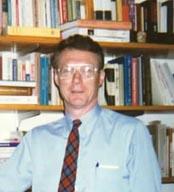
Prof. Cook has retired and no longer directs BA theses or accepts new graduate students.
John Hopkins University, PhD '72
BIOGRAPHY
I am a specialist in early modern English and American history, with teaching interests that span the Atlantic. My research is concentrated in early American history, with a special focus in social history and a geographical focus on New England. I am especially interested in themes of community, family, rural economy and society, grassroots religion, and the social context of political behavior.
Recent Research / Recent Publications
-
The Fathers of the Towns: Leadership and Community Structure in Eighteenth Century New England. Baltimore: Johns Hopkins Press, 1976.
-
Ossipee, New Hampshire, 1785–1985: A History, vol. 1. Portsmouth, NH: Peter Randall Publishers, 1989 (popular history).
-
"Geography and History: Spatial Perspectives for the Study of Early America," Historical Methods 13 (1980), 19–28.
-
"Local Leadership and the Typology of New England Towns, 1700– 1775," Political Science Quarterly 86 (1971), 586–608.
-
"Social Behavior and Changing Values in Dedham, Massachusetts, 1770–1775," William and Mary Quarterly, 3rd Series, 27 (1970), 546–80.
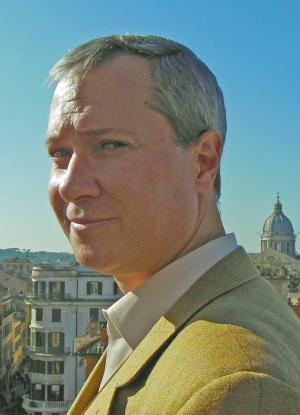
University of Cambridge, PhD '93
BIOGRAPHY
Jonathan Hall's earlier research was focused on the cultural and social history of ancient Greece, with a particular emphasis on the construction, meaning, and functions of ethnic identity among Greek communities. His first book, Ethnic Identity in Greek Antiquity (Cambridge, 1997) received the 1999 Charles J. Goodwin Award for Merit from the American Philological Association, while Hellenicity: Between Ethnicity and Culture (Chicago, 2002) was the recipient of the 2004 Gordon J. Laing Award from the University of Chicago Press. He has also tackled questions of historical method which are explored in History of the Archaic Greek World, ca. 1200–479 BCE 2nd edn. (Chichester, 2014), which has been translated into Polish and Greek, and in Artifact and Artifice: Classical Archaeology and the Ancient Historian (Chicago, 2014). His most recent book is Reclaiming the Past: Argos and its Archaeological Heritage in the Modern Era (Ithaca, 2021). He is currently working on a book about what it meant to be Greek in the Iron Age and on an archaeological history of Corfu from prehistory to the present day. He is also the author of a series of articles and chapters concerning the early polis, Greek colonization, and cultural identities. In 2009 he was awarded the Quantrell Award for Excellence in Undergraduate Teaching.
Recent Research / Recent Publications
- The Connected Iron Age: Interregional Networks in the Eastern Mediterranean, 900-600 BCE, co-edited with James F. Osborne. University of Chicago Press, 2022.
- Reclaiming the Past: Argos and its Archaeological Heritage in the Modern Era. Ithaca: Cornell University Press, 2021.
- Artifact and Artifice: Classical Archaeology and the Ancient Historian. Chicago: University of Chicago Press, 2014.
- A History of the Archaic Greek World, ca. 1200–479 BCE, 2nd ed. Chichester: Wiley-Blackwell, 2014.
- A History of the Archaic Greek World, ca. 1200–479 BCE, 1st ed. Malden, MA: Blackwell, 2007. [Also translated into Polish and Greek.]
- Hellenicity: Between Ethnicity and Culture. Chicago: University of Chicago Press, 2002.
- Ethnic Identity in Greek Antiquity. Cambridge: Cambridge University Press, 1997.
- “Colonizing the Past: The Case of Argos in the Late Eighteenth and Early Nineteenth Centuries,” in The Routledge Handbook of Classics and Postcolonial Theory, edited by K. Blouin and B. Akrigg, 577–590. London and New York: Routledge, 2024.
- “Argos,” in The Oxford History of the Archaic Greek World. Vol. I: Argos to Corcyra, edited by P. Cartledge and P. Christesen, 1–94. Oxford: Oxford University Press, 2024.
- “Politics,” in A Companion to Greek Lyric, edited by L. Swift, 76–88. Chichester: Wiley-Blackwell, 2022.
- "The archaeology of 'celebrities' in the Greek and Roman worlds," Acta ad archaeologiam et artium historiam pertinentia 30 (2018): 310–27.
- "Hellenic Homelands: The Greek Diaspora, Ancient and Modern." In An Age of Experiment: Classical Archaeology Transformed (1976–2014), edited by L. Nevett and J. Whitley, 235–46. Cambridge: MacDonald Institute for Archaeological Research, 2018.
- "The Determinacy of Space and State formation in Archaic Greece." In Eurasia at the Dawn of History: Urbanization and Social Change, edited by M. Fernández-Götz and D. Krausse, 279–90. Cambridge: Cambridge University Press, 2017.
- "Quanto c’è di 'greco' nella 'colonizzazione greca'?" In Conceptualizing Early Colonization, edited by L. Donnellan, V. Nizzo, and G. J. Burgers, 51–59. Brussels: Belgisch Historisch Instituut te Rome, 2016.
- "Ancient Greek Ethnicities: Towards a Reassessment," Bulletin of the Institute of Classical Studies 58, no. 2 (2015): 15–29.
- "Federalism and Ethnicity.” In Federalism in Greek Antiquity, edited by H. Beck and P. Funke, 30–48. Cambridge: Cambridge University Press, 2015.
- "The Rise of State Action in the Archaic Age." In A Companion to Ancient Greek Government, edited by H. Beck, 9–21. Chichester: Wiley-Blackwell, 2013.
- "Early Greek Settlement in the West: The Limits of Colonialism." In Theatre Outside Athens: Drama in Greek Sicily and South Italy, edited by K. Bosher, 19–34. Cambridge: Cambridge University Press, 2012.
- "Imagining a Community beyond the Polis: The Emergence and Transformation of the Ethnos." In Forme sovrapoleiche e interpoleiche di organizzazione nel mondo greco antico, edited by M. Lombardo, 28–37. Galatina: Congedo, 2011.
- "Autochthonous Autocrats: The Tyranny of the Athenian Democracy." In Private and Public Lies: The Discourse of Despotism and Deceit in the Ancient World, edited by K.O. Chong-Gossard, F. Vervaet, and A. Turner, 11–28. Leiden: Brill, 2010.
- "Foundation Stories." In Greek Colonisation. An Account of Greek Colonies and Other Settlements Overseas in the Archaic Period, vol 2, edited by G. Tsetskhladze, 383–426. Leiden: Brill, 2008.
- "Politics and Greek Myth." In The Cambridge Companion to Greek Mythology, edited by R. Woodard, 331–354. Cambridge: Cambridge University Press, 2008.
- "International Relations." In The Cambridge History of Greek and Roman Warfare, vol 1: Greece, the Hellenistic World and the Rise of Rome, edited by P. Sabin, H. van Wees, and M. Whitby, 85–107. Cambridge: Cambridge University Press, 2007.
- "Arcades His Oris: Greek Projections on the Italian Ethnoscape?" In Cultural Borrowings and Ethnic Appropriations in Antiquity, edited by E. Gruen. Stuttgart: Franz Steiner, 2005.
- "Culture, Cultures, and Acculturation." In Das Archaische Griechenland: Interne Entwicklungen, Externe Impulse, edited by R. Rollinger and C. Ulf. Berlin: Akademie Verlag, 2004.
- "The Dorianization of the Messenians." In Helots and their Masters in Laconia and Messniea: Histories, Ideologies, Structures, edited by N. Luraghi and S.E. Alcock. Washington, DC: Center for Hellenic Studies, 2003.
- "Contested Ethnicities: Perceptions of Macedonia within Evolving Definitions of Greek Identity." In Ancient Perceptions of Greek Ethnicity, edited by I. Malkin. Washington, DC: Center for Hellenic Studies, 2001.
- "Sparta, Lakedaimon and the Nature of Perioikic Dependency." In Further Studies in the Ancient Greek Polis, edited by P. Flensted-Jensen. Stuttgart: Franz Steiner, 2000.
- (With Catherine Morgan) "Achaian Poleis and Achaian Colonisation." In Introduction to an Inventory of Poleis. Acts of the Copenhagen Polis Centre 3, edited by M. H. Hansen. Copenhagen: Det Kongelige Danske Videnskabernes Selskab, 1996.
- "The Role of Language in Greek Ethnicities." Proceedings of the Cambridge Philological Society 41 (1995).
- "How Argive was the "Argive" Heraion? The Political and Cultic Geography of the Argive Plain, 900–400 BC." American Journal of Archaeology 99 (1995).
- —Appeared on the podcast Byzantium and Friends, Episode 75
- Co-organizes international conference, "The Connected Iron Age: Interregional Networks in the Eastern Mediterranean, 900–600 BCE"
- Publishes Artifact and Artifice: Classical Archaeology and the Ancient Historian (Chicago, 2014)
- Publishes A History of the Archaic Greek World, ca. 1200–479 BCE, 2nd edition (Wiley-Blackwell, 2014)

Prof. Bresson has retired and no longer directs BA theses or accepts new graduate students.
University of Franche-Comté, Doctorat d'Etat' 94
Recent Research / Recent Publications
- Named a 2018–19 Guggenheim Fellow
- Awarded James Breasted Prize by the AHA for The Making of the Ancient Greek Economy
- Publishes The Making of the Ancient Greek Economy: Institutions, Markets, and Growth in the City-States. Princeton University Press Translated by Steven Rendall
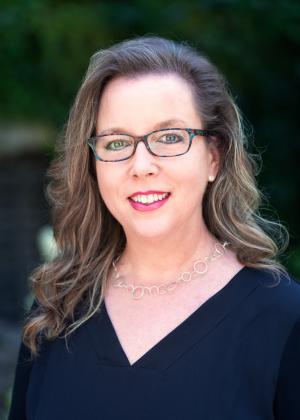
Stanford University, PhD '00
Emily Lynn Osborn is Associate Professor in the Department of History and the College.
Affiliated Faculty, Center for Gender and Sexuality Studies
Faculty Affiliate, Center for the Study of Race, Politics, and Culture
Faculty Board, Center for International Social Science Research
Faculty Board, Pozen Family Center for Human Rights
BIOGRAPHY
Osborn is a historian of Africa, with a particular interest in precolonial and colonial West Africa. She is currently the Faculty Director of the Senegal study abroad program, and she has also served as co-director of the Committee on African Studies, chair of the College’s British fellowships committee, and on the Faculty Boards of the Center for International Social Science Research and the Pozen Family Center for Human Rights. She is also the Faculty Director of the Social Sciences Postdoctoral Teaching Fellows program and an editor of The Journal of African History.
Her first book, Our New Husbands Are Here: Households, Gender, and Politics in a West African State from the Slave Trade to Colonial Rule, uses gender analysis to investigate the intertwined history of household making and statecraft in Kankan, Upper Guinée (located in Guinea). Other topics on which Osborn has published include the history of technology transfer and diffusion in West Africa; the role of intermediaries in colonial rule, the Anthropocene in Africa; the history and cultural significance of the color red in the Atlantic world; and the relationship in West Africa of containers and mobility. She has also researched the effort by the United States government in the 1950s and 1960s to export the model of the land grant university to Africa.
Osborn earned her A.B. from the University of California, Berkeley, and her Ph.D. from Stanford University. Her research has been supported by Fulbright IIE and Fulbright-Hays fellowships and by the American Council of Learned Societies and Social Science Research council. Before coming to the University of Chicago, Osborn served as the Carl E. Koch Assistant Professor of History at the University of Notre Dame.
TEACHING INTERESTS
At the University of Chicago, Prof. Osborn teaches courses on precolonial, colonial, and postcolonial African history; graduate and undergraduate seminars on African historiography; oral sources of history; gender and state-craft; as well as histories on enslavement, the transatlantic commerce in enslaved peoples, and the making of the Atlantic world.
Recent Research / Recent Publications
- “Containers and Mobility in West Africa.” In "On Containers," edited by Andrew Shyrock and Daniel Lord Smail. Special issue, History and Anthropology 29, no. 1 (2018): forthcoming.
- Editor, The Journal of African History.
- "Containers, Energy, and the Anthropocene in West Africa." In Economic Development and Environmental History in the Anthropocene: Perspectives on Asia and Africa, edited by Gareth Austin. New York: Bloomsbury, 2017.
- "From Bauxite to Cooking Pots: Aluminum, Chemistry, and West African Artisanal Production." In "Exploring Global History through the Lens of History of Chemistry," edited by Lissa Roberts. Special issue, History of Science 54, no. 4 (Dec. 2016): 425–42.
- "Red Echoes of Enslavement: Cochineal Red, West Africa, and the Slave Trade." In A Red Like No Other: How Cochineal Colored the World, edited by Carmella Padilla and Barbara Anderson. New York: Skira Rizzoli, 2015.
- "Work and Migration." In The Oxford Handbook of Modern African History, edited by Richard Reid and John Parker. Oxford: Oxford University Press, 2013.
- Our New Husbands Are Here: Households, Gender, and Politics in a West African State from the Slave Trade to Colonial Rule. Athens: Ohio University Press, New African Histories, 2011.
- "Casting Aluminium Cooking Pots: Labour, Migration and Artisan Production in West Africa’s Informal Sector, 1945–2005." African Identities 7, no. 3 (Fall 2009): 373–86.
- "Loyalty, Perfidy, and Scandal in Guinée Française: The Noirot-Penda Affair." In Intermediaries, Interpreters and Clerks: African Employees and the Making of Colonial Africa, edited by Benjamin N. Lawrance, Emily Lynn Osborn, and Richard L. Roberts. Madison: University of Wisconsin Press, 2006.
- Coauthor with Richard Roberts and Benjamin Lawrance. "Introduction: Intermediaries and the Making of Colonial Africa." In Intermediaries, Interpreters and Clerks: African Employees and the Making of Colonial Africa, edited by Benjamin N. Lawrance, Emily Lynn Osborn, and Richard L. Roberts. Madison: University of Wisconsin Press, 2006.
- "'Rubber Fever,' Commerce and French Colonial Rule in Upper Guinée, 1890–1913." Journal of African History 45 (2004): 445–65.
- "'Circle of Iron': African Colonial Employees and the Interpretation of Colonial Rule in French West Africa, 1890–1910." Journal of African History 44 (2003): 27–48. Reprinted in The Rise and Fall of Modern Empires: Social Organisation, vol. I, edited by Owen White. Farnham, England: Ashgate, 2013.
- Delivered convocation address, Graham School [20 mins]
- Participates in Q&A on how to teach the Anthropocene, EuropeNow, with syllabus
- Received 2016 Quantrell Award for Excellence in Undergraduate Teaching
- Coorganized "Climate Change: Disciplinary Challenges to the Humanities and Social Sciences"
- Organized "Global Midwest" conference
- Discusses effective public speaking for AHA Today (blog)
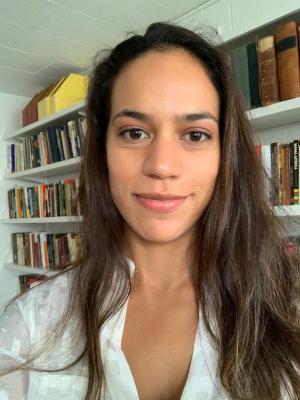
University of Virginia, PhD '15
BIOGRAPHY
Mary Hicks is a historian of the Black Atlantic, with a focus on transnational histories of race, slavery, capitalism, migration and the making of the early modern world. Her first book, Captive Cosmopolitans: Black Mariners and the World of South Atlantic Slavery, 1721-1835, reimagines the history of Portuguese exploration, colonization and oceanic commerce from the perspective of enslaved and freed black seamen laboring in the transatlantic slave trade. As the Atlantic world’s first subaltern cosmopolitans, black mariners, she argues, were integral in forging a unique commercial culture that linked the politics, economies and people of Salvador da Bahia with those of the Bight of Benin.
More broadly, she seeks to interrogate the multiplicity of connections between West Africa and Brazil through the lens of mutual cultural, technological, commercial, intellectual and environmental influences and redefine how historians understand experiences of enslavement and the middle passage. In addition to investigating the lives of African sailors, she also explores the cultural and religious sensibilities of enslaved and freed African women in living in 19th century Salvador da Bahia. Along these lines, her second book will detail the emergence and elaboration of new gendered and racialized subjectivities in the wake of Portugal’s initiation of trade with West Africa in the fifteenth century.
Prof. Hicks received her B.A. from the University of Iowa and her Ph.D. from the University of Virginia, where she was a recipient of the Jefferson Fellowship. She has also received the Ford Foundation Dissertation Fellowship and the Mamolen Fellowship at the Hutchins Center at Harvard University. She is the winner of the Southern Historical Association’s Latin American & Caribbean Section Dissertation Prize and been a finalist for the CGS/Proquest Distinguished Dissertation Award for the Humanities and Fine Arts.
Recent Research / Recent Publications
-
Captive Cosmopolitans: Black Mariners and the World of South Atlantic Slavery, 1721-1835 (under contract with Omohundro Institute of Early American History & Culture for The University of North Carolina Press), forthcoming
-
“Transatlantic Threads of meaning: West African Textile entrepreneurship in Salvador da Bahia, 1770- 1870,” Slavery & Abolition 41:4 (December 2020), 695-722
-
“Financing the Luso-Atlantic Slave Trade: Collective Investment Practices from Portugal to Brazil, 1500-1840,” Journal of Global Slavery 2:3 (2017), 273-309
-
“João de Oliveira’s Atlantic World: Mobility and Dislocation in Eighteenth-Century Brazil and the Bight of Benin,” in The Many Faces of Slavery: New Perspectives on Slave Ownership and Experiences in the Americas Eds. Lawrence Aje and Catherine Armstrong, (London: Bloomsbury Press, 2019)
-
“Middle Passage,” in 400 Souls, Eds. Keisha N. Blain and Ibram X. Kendi (New York: Basic Books, 2021)
-
Review of Sharla Fett’s Recaptured Africans: Surviving Slave Ships, Detention and Dislocation in the Final Years of the Slave Trade in Black Perspectives (November 16, 2018)
-
Review of Hazel V. Carby’s Imperial Intimacies: A Tale of Two Islands in Black Perspectives (February 5, 2021)
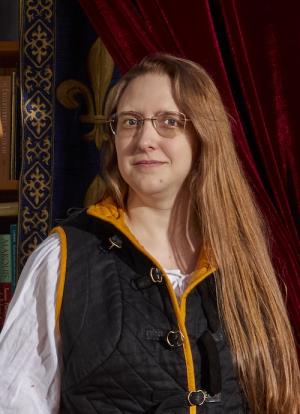
Harvard University, PhD '09
BIOGRAPHY
My research on intellectual history, or the history of ideas, is my way of exploring how history and thought shape each other over time. The Italian Renaissance is a perfect moment for approaching this question because at that point the ideas about science, religion, and the world that had developed in the Middle Ages suddenly met those of the ancient world, reconstructed from rediscovered sources. All at once many beliefs, scientific systems, and perceived worlds clashed, mixed, and produced an unprecedented range of new ideas, which in turn shaped the following centuries and, thereby, our current world.
My current research focuses on patterns in the history of the real motives of censors over space and time, from antiquity to the digital age, especially the Inquisition and early modern censorship, and 20th century censorship of popular media. The enormous impact of Orwell's Nineteen Eighty-Four has led modern people to imagine censorship working the way his Ministry of Truth does: imposed top-down on a populace, with vast resources, a stable, long-term plan, and the goal of controlling society, stifling thought, and destroying information. But the real actions and records of past censors reveal that the vast majority of real censorship has inverse qualities: shaped by bottom-up social anxiety, constantly desperate for funds and personnel, hastily improvised in response to a perceived crisis, constantly transformed ad hoc as the perceived threat changes, and (from the point of view of the censors) aiming to protect vulnerable individuals, and to encourage self-censorship rather than destroying extant information. Only by examining the real motives which have made people say "Yes" to censorship over space and time can we understand what patterns help it flourish, and ways to combat it. I am especially interested in how innovations in information technology trigger waves of new censorship, a topic I explored in a dialog series and museum exhibit: voices.uchicago.edu/censorship.
As a novelist (science fiction, fantasy, and historical fiction), I am also very interested in how to better connect the worlds of history research and speculative fiction, both to innovate pedagogically, and to help new improved historical narratives and correctives make it into the books, games, and TV which are what shape most people's first impressions of history, but often draw on histories that are more than half a century out of date. I have a forthcoming collection of essays on history and genre fiction, Diaspora of Time: Conversations on Science Fiction and Fantasy coming from Tor Books, several publications on history in SF&F, comics, anime & manga, and am a nonfiction columnist for Strange Horizons. I also employ creative writing, role-playing and LARP in my classes, and work with SFWA (the Science Fiction Writers of America) on helping to connect writers with historians and their research. I also have a forthcoming popular press book, Why Renaissance? Invention of a Golden Age, which aims to present to a general audience how and why the ideas of a golden Renaissance and bad Middle Ages were invented, and how historians are still working to improve and update them, and to update popular conceptions of Renaissance humanism.
My first scholarly book, Reading Lucretius in the Renaissance, explores scholars' use of Lucretius's Epicurean didactic poem De Rerum Natura from its rediscovery in 1417 to 1600, focusing on the challenges its atomistic physics posed to Christian patterns of thought. In a period when atheism was often considered a sign of madness, the sudden availability of a sophisticated system that explained natural phenomena in nontheistic ways and that argued powerfully against the immortality of the soul, the afterlife, and a creator God threatened to supply the one weapon unbelief had lacked in the Middle Ages: good answers. At the same time, humanist scholars who idealized ancient Rome were eager to study a poem whose language and structure so often anticipated their beloved Aeneid. My book uncovers humanist methods for reconciling Christian and pagan philosophy and shows how atomism and ideas of emergent order and natural selection, so critical to our current thinking, became situated in Europe's intellectual landscape at the beginning of the scientific transformations of the seventeenth century. In it I employ a new quantitative method for analyzing marginalia in manuscripts and printed books, whose results expose how changes in scholarly reading practices over the course of the sixteenth century, fostered by the growth of printing, controlled the circulation of texts and gradually expanded Europe's receptivity to radical science, setting the stage for the scientific revolution.
I also work extensively on classical transformations, i.e., how, thanks to humanist enthusiasm for reconstructing the golden age of ancient Greece and Rome, material received from the classical and medieval worlds was transformed in Renaissance hands and in turn transformed the Renaissance world. I am working on a long-term project on the imagined antiquity believed in by Renaissance humanists, and how their efforts to reconstruct the ancient world aimed, not at the ancient world as we now understand it, but at a very different ancient world whose character can be reconstructed from Renaissance paratexts, imitations, paintings, period translations, biographies of ancients, forgeries, and spuria which we often dismiss today as simple errors. Along with the Classical Transformations Group at Texas A&M University and the Transformationen der Antike group at the Humboldt-Universität zu Berlin, I am working to change the way we think about reception studies, and bring greater attention to how each period transforms and is transformed by the materials it inherits from earlier eras.
Much of my research has been conducted in rare books libraries, especially in Rome and Florence, where I worked with Renaissance copies of classical texts, both manuscripts and printed books. I have been a Fulbright scholar in Italy and a graduate reader and later a fellow at the Villa I Tatti Harvard University Center for Italian Renaissance Studies. I completed my PhD and graduate teaching at Harvard University, and taught at Texas A&M University before coming to the University of Chicago. My article "Reading Lucretius in the Renaissance" (Journal of the History of Ideas, 73:3, [July 2012]: 395–416) won the 2013 I Tatti Prize for Best Article by a Junior Scholar, and the prize for the best article in the JHI.
All my projects stem from my overall interest in the relationship between ideas and historical change. Our fundamental convictions about what is true evolve over time, so different human peoples have, from their own perspectives, lived in radically different worlds. The universe which Thomas Aquinas thought he occupied was not the universe in which Plato or Machiavelli or Freud believed they lived, and such beliefs in turn shaped the futures they tried to build out of what they inherited from the past. Our own current efforts to build the future are likewise predicated on what we believe is true, but what we believe is not what any past culture has believed, nor what any future cultures will believe.
Recent Research / Recent Publications
- Inventing the Renaissance: The Myth of a Golden Age. Chicago, IL: The University of Chicago Press, 2025.
- Reading Lucretius in the Renaissance. Cambridge, MA: Harvard University Press, I Tatti Renaissance Studies Series, 2014.
- Coauthored with James Hankins. The Recovery of Classical Philosophy in the Renaissance, a Brief Guide. Florence: Istituto Nazionale di Studi sul Rinascimento, 2007.
- “The Persecution of Renaissance Lucretius Readers Revisited,” in Philip Hardie, Valentina Prosperi, and Diego Zucca eds., Lucretius Poet and Philosopher: Background and Fortunes of ‘De Rerum Natura’, De Gruyter, 2020.
- “Humanist Dissemination of Epicureanism,” in The Oxford Handbook of Epicureanism, ed. Phillip Mitsis. Oxford: Oxford University Press, 2020.
- “The Effects of Authorial Strategies for Transforming Antiquity on the Place of the Renaissance in the Current Philosophical Canon,” in Beyond Reception: Renaissance Humanism and the Transformation of Classical Antiquity, eds. Patrick Baker, Johannes Helmrath, and Craig Kallendorf, 2019.
- “Humanist Lives of Classical Philosophers and the Idea of Renaissance Secularization: Virtue, Rhetoric, and the Orthodox Sources of Unbelief.” Renaissance Quarterly, 70, 3 (2017), 935-76.
- “On Progress and Historical Change,” KNOW: A Journal on the Formation of Knowledge, Fall 2017, pp. 319-337.
- “The Active and Monastic Life in Humanist Biographies of Pythagoras,” Forms and Transfers of Pythagorean Knowledge: Askesis—Religion—Science, eds. Almut-Barbara Renger & Alessandro Stavru. Harrassowitz: Wiesbaden, 2016.
- “The Recovery of Stoicism in the Renaissance,” in The Routledge Handbook of the Stoic Tradition, ed. John Sellars. New York: Routledge, 2016, pp. 117-132.
- "T. Lucretius Carus, Addenda et Corrigenda." In Catalogus Translationum et Commentariorum: Mediaeval and Renaissance Latin Translations and Commentaries, vol. 10. Washington D.C.: Catholic University of America Press, 2014.
- "The Recovery of Stoicism in the Renaissance." In The Routledge Handbook to the Stoic Tradition, edited by John Sellars, forthcoming.
- "The Use and Defense of the Classical Canon in Pomponio Leto's Biography of Lucretius." In Vitae Pomponianae, Biografie di Autori Antichi nell’Umanesimo Romano (Lives of Classical Writers in Fifteenth-Century Roman Humanism), proceedings of a conference hosted by the Danish Academy in Rome and the American Academy in Rome, April 24, 2013, Renaessanceforum (Forum for Renaissance Studies, Universities of Aarhaus & Copenhagen), 2014.
- "Reading Lucretius in the Renaissance." The Journal of the History of Ideas 73, no. 3 (July 2012): 395–416.
- Terra Ignota (novel series, four volumes starting with volume 1 Too Like the Lightning), Tor Books 2016-21.
- “Writing/Realizing Disability + Power,” Strange Horizons, August 2022.
- “The Protagonist Problem,” with Jo Walton, Uncanny Magazine, 2021.
- “Censorship and Genre Fiction: Let’s Broaden our Broader Reality.” Uncanny Magazine, May 2020.
- "Ada Palmer and the Weird Hand of Progress” profile in Wired Magazine, 2022.
- "Why Trump's Decision to Intervene in Campus Speech Policies Is So Dangerous," op-ed, Washington Post, Mar. 28, 2019.
- "Why Is Silcon Valley So Obsessed with the Virtue of Suffer?" New York Times, Mar. 26, 2019.
- "How #Article13 Is Like the Inquisition: John Milton against the EU #CopyrightDirective," Boing Boing, Mar. 24, 2019
- Profile in the university's alumni magazine
- Reviews Enlightenment Now for Harvard Magazine
- Launches censorship research project with Adrian Johns
- Q&A with Chicago Magazine on third novel
- NPR reviews Too Like the Lightning
- Scientific American interview with Palmer about her novel
- Edits Volume of Student Essays as Part of Graduate Colloquium
- Publishes Reading Lucretius in the Renaissance (Harvard, 2014)
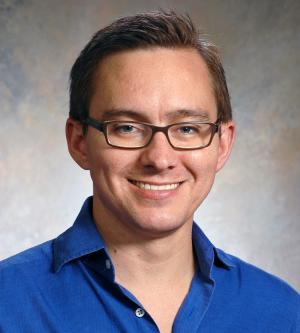
Princeton University, PhD '09
BIOGRAPHY
A historian of the Iranian world in late antiquity, ca. 200–800 CE, Payne's research focuses primarily on the dynamics of Iranian imperialism, specifically how the Iranian (or Sasanian) Empire successfully integrated socially, culturally, and geographically disparate populations from Arabia to Afghanistan into enduring political networks and institutions.
His recent book, A State of Mixture: Christians, Zoroastrians, and Iranian Political Culture in Late Antiquity, explores the problem of religious diversity within the empire, showing how Syriac-writing Christians could create a place for themselves in a political culture not of their own making. He is currently at work on the role of Zoroastrian religious institutions and the intersection of ideological and material dimensions in Iranian history.
Recent Research / Recent Publications
- Co-editor, with Marcelo Campagno, Carlos García Mac Gaw, et al., Desigualdades Antiguas: Economía, Cultura y Sociedad en el Oriente Medio y el Mediterráneo (Buenos Aires, 2023).
- Co-editor with Rhyne King, The Limits of Empire in Ancient Afghanistan. Rule and Resistance in the Hindu Kush, circa 600 BCE–600 CE (Wiesbaden: Harrassowitz 2020).
- Editor, Visions of Community in the Post-Roman World: The West, Byzantium and the Islamic World, 300–1100 (Routledge, 2016).
- Co-editor with Myles Lavan and John Weisweiler, Cosmopolitanism and Empire: Universal Rulers, Local Elites, and Cultural Integration in the Ancient Near East and Mediterranean (OUP, 2016)
Awards for A State of Mixture: Christians, Zoroastrians, and Iranian Political Culture in Late Antiquity (California, 2015):
- World Award for Book of the Year, Islamic Republic of Iran
- Jacques Barzun Prize in Cultural History, American Philosophical Society
- Ehsan Yarshater Prize, International Society for Iranian Studies
- Award for Excellence in the Study of Religion, American Academy of Religion
Named a Neubauer Family Assistant Professor in 2013.